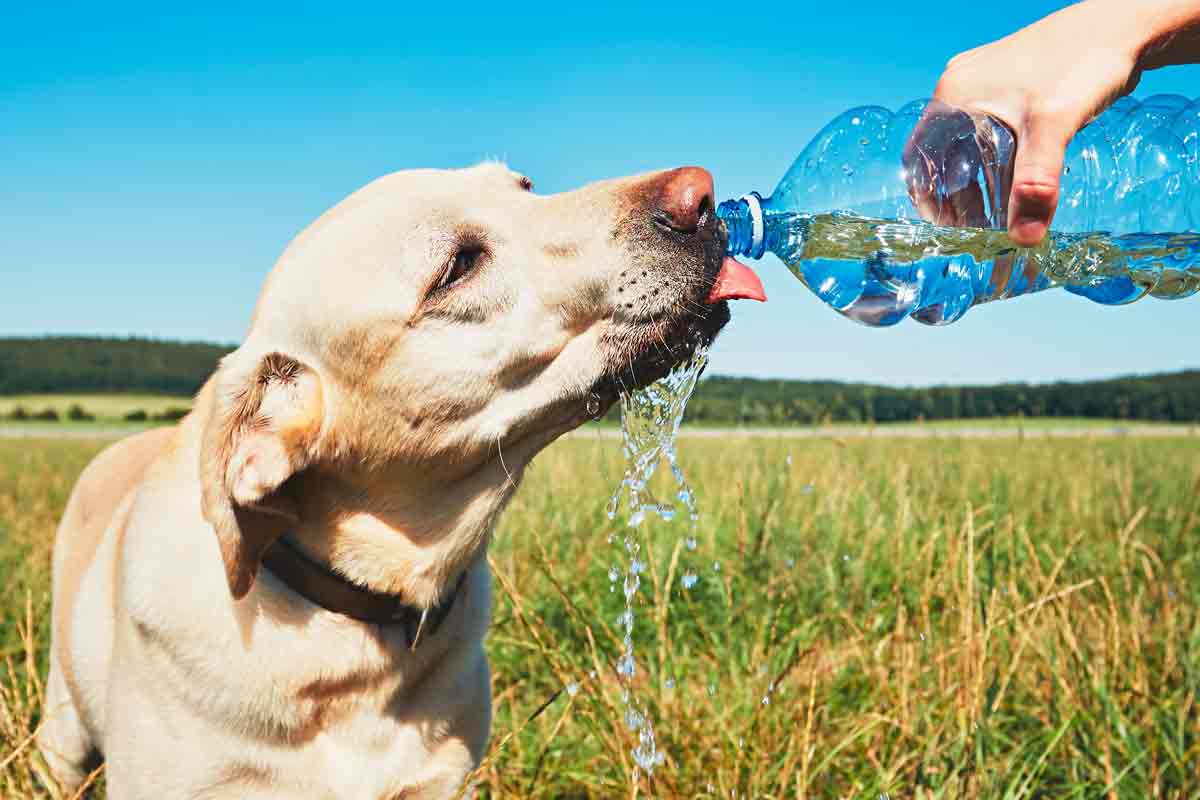
For people and dogs alike, water has a critical role to play when it comes to virtually all bodily functions. If your dog does not take in enough water, particularly on a warm day or during vigorous exercise, dehydration may come on quickly.
Dehydration can lead to serious health issues and even death, so it is important to know the signs of dehydration, how to treat it, and what you can do to keep your dog hydrated.
Why is water so important for dogs?
Just like humans, dogs need water to keep their body systems functioning smoothly. Water moisturizes the air in the lungs, transports oxygen and nutrients to cells, protects organs and joints, helps eliminate waste from the body, and supports nervous system function. Staying hydrated supports everything from digestion and brain activity to blood flow and breathing.
Water also helps your dog regulate their body temperature. While dogs sweat through their paw pads, they also cool down by panting, evaporating water in the form of saliva from their tongues.
What is dehydration?
Dehydration can be very dangerous in dogs. When a dog becomes dehydrated, they lose more water and electrolytes than they take in through eating and drinking.
When fluid levels and blood flow decrease, organs and tissues do not receive the oxygen they need to properly function. Additionally, without enough water to help regulate body temperature, dehydrated dogs can easily become overheated and suffer heatstroke.
Severe cases of dehydration can lead to kidney failure and loss of consciousness and can be fatal.
Causes of dehydration
Dogs naturally lose water throughout the day by breathing, defecating, urinating, and panting. In addition to panting, dogs also regulate their body temperature by sweating through their paws.
Dehydration in dogs can also occur due to excessive fluid loss associated with fever, heatstroke, diarrhea, and persistent vomiting. Unfortunately, these are often signs of other underlying health issues that need to be treated in order to address dehydration.
Consult your veterinarian if you suspect your dog may be suffering from an illness that is causing excessive fluid loss and dehydration.





